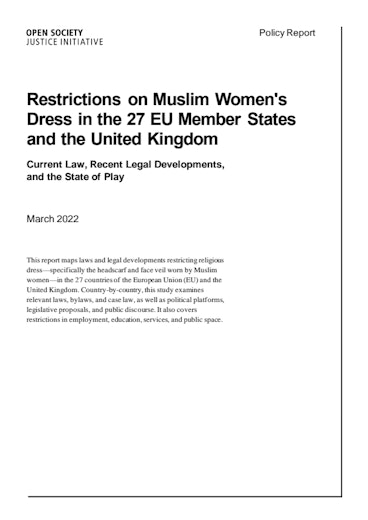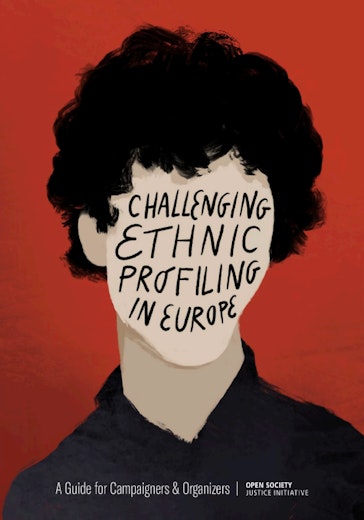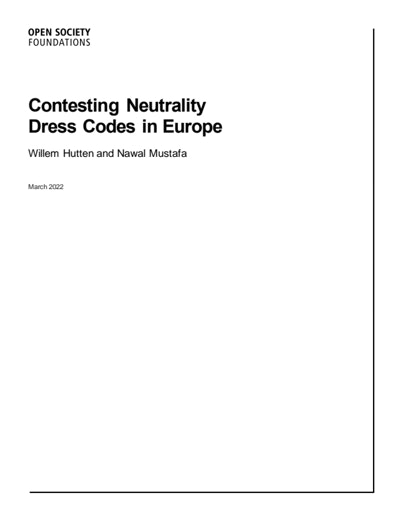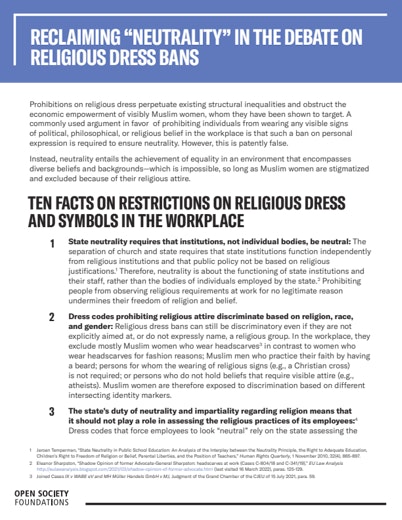Contesting Neutrality Dress Codes in Europe
Bans on religious attire in workplaces, educational and government institutions, and public spaces are not, in fact, neutral, as their proponents claim, but rely on Islamophobic discourses that portray Islamic dress as non-neutral. The way that neutrality is presented in this debate ignores that it refers primarily to the state and its institutions rather than individual freedoms. Because its purpose is to ensure equality and preserve freedom, the principle of state neutrality should be seen in alignment with religious pluralism, contrary to what is argued by proponents of religious dress bans.
This briefing paper authored with support from the intersectional women's collective S.P.E.A.K. aims to support Muslim women, campaigners, litigators, and other stakeholders challenging discriminatory and exclusionary religious dress bans by deconstructing the concept of neutrality and analyzing its treatment by various courts as well as its use in public and political discourse. The paper presents avenues for reclaiming neutrality to achieve equality and freedom, and for further legal action.
The accompanying fact sheet to this briefing paper summarizes responses to common incorrect framings of neutrality and explains why religious dress bans inherently discriminate against certain groups, predominantly Muslim women.
Restrictions on Muslim Women's Dress in the 27 EU Member States and the United Kingdom
This policy brief and accompanying fact sheet map EU and UK laws and pending legislation restricting religious dress—specifically the headscarf and face veil worn by Muslim women.

Challenging Ethnic Profiling in Europe: A Guide for Campaigners and Organizers
This guide provides an international overview of how to challenge and end ethnic profiling, distilling key lessons and strategic insights learned from over a decade of work on the ground.


